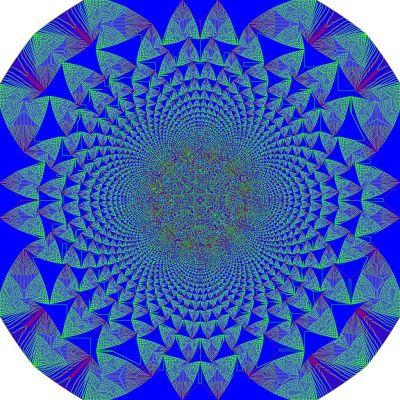Yet, in spite of such high praise for his individual achievements, Dr
Avila has always strived to emphasise the power of collaboration and
teamwork. As he leads the ERC-funded ‘Quasiperiodic’ project towards
completion next year, his focus will be not only on the results but also
what he can learn from his team of international peers.
The Early Career Award; the Michael Brin Prize; the Herbrand Prize:
it’s no surprise to those that know Dr Avila of old that his relatively
young career is soaring. By the age of 16, he was already showing an
incredible aptitude for mathematics. He won a gold medal at the 1995
International Mathematical Olympiad and soon received a scholarship for
the prestigious Instituto Nacional de Matemática Pura e Aplicada (IMPA)
in his native Brazil. Five years later, at an age when most fresh-faced
scholars are contending with a Bachelor’s degree, Dr Avila emerged from
IMPA with a PhD. He moved to Paris and soon discovered that the ‘City of
Light’ was a veritable playground for a young mathematician eager to
collaborate with world-class peers.
“The most important for me is the interaction with a diverse set of
mathematicians of high level. Paris is ideal in this respect. It has
perhaps the largest concentration of mathematicians in the world. In
France, I had the opportunity to have a full time research position
while getting exposed to a huge amount of mathematics, which was an
ideal situation for a beginner,” he explains.
Around ten years after he first moved to Paris, Dr Avila, now
Professor at IMPA and senior researcher at CNRS (Centre National de la
Recherche Scientifique), embarked on the ‘Quasiperiodic’ project with an
ERC grant. Together with his team, he has been studying two distinct
classes of dynamical systems which display a quasiperiodic component.
The first class consists of quasiperiodic cocycles while the second
class consists of translation flows on higher genus surfaces.
Two of what Dr Avila considers his most important recent
achievements in relation to ‘Quasiperiodic’ have been solved
hand-in-hand with fellow researchers, Mikhail Lyubich and Vincent
Delecroix. Such opportunities for collaboration may be particularly
plentiful in the coming years as dynamical systems, ergodic theory and
spectral theory are currently some of the most active areas in
mathematics. And while Dr Avila and his peers focus on the pure maths,
research relating to these theories is also leading to a range of
practical applications.
With his ERC Starting grant, Dr Avila has been able to fund five
promising post-docs coming from France, the US, Greece, China and
Russia. As Dr Avila says: “We want good people, and good people come
from everywhere.”
Organisations like the ERC, Dr Avila believes, are helping to keep
researchers at work in pure mathematics at a time when fewer and fewer
positions are opening up. He comments: “The ERC grant has allowed me to
fund post-docs with certain flexibility. This is helping to keep people
doing maths when no permanent positions are coming up. However, we do
urgently need to address the current trend towards the opening of fewer
positions in pure mathematics.”
Although Dr Avila continues to enjoy the nurturing and dynamic
research scene he found in Paris as a young post-doc, he will, no doubt,
be returning to Brazil for at least a few weeks in August 2018, when
his home country will host the next International Congress of
Mathematicians (ICM). Taking the mantle from Korea who holds the ICM
this month, the event offers Brazil an important opportunity to develop
maths. He concludes, “The ICM will make a much larger public aware that
there is such a thing as research in maths and that it is already being
conducted at an international level in Brazil. This could make all the
difference in getting young talented people to consider math as a
possible career.”
Project details
Research area: Mathematics
Principal investigator: Dr. Artur Avila Cordeiro De Melo
Host institution: Centre National de la Recherche Scientifique (CNRS), France
ERC project: Dynamics of quasiperiodic type (Quasiperiodic)
ERC call: ERC Starting grant 2010
ERC funding: € 1 million for five years
Links:
Researcher’s webpage
